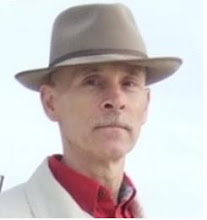I am not a supporter of ‘gay’ rights. I don’t believe people deserve civil rights protection for behavior that puts them in the minority. And I like using the term homosexual. It is a more accurate description than ‘gay.’
However, when considering the current discussion of homosexuals in the military, I don’t exactly come down on the side of conservatives. Homosexuals have served in the military for a long time; probably forever. When I served on active duty in the Navy, it was well known, but rarely discussed, that there were lots of homosexuals serving as Hospital Corpsmen (pronounced COR-MEN for those of you who were educated at Columbia). They had to keep it secret, because the official policy was to prohibit homosexuals from serving in the military. The Naval Investigative Service (now the NCIS) spent a lot of time investigating and processing people out of the Navy for homosexual activity. That was in the 1970s, when I was on active duty.
My father served in the Navy in World War II and the Korean War. He mentioned that when he grew up in Indianapolis and Kokomo, that he didn’t know anything about homosexuals, but in his word, “When I got in the Navy, they were everywhere.” I wondered about this until I remembered that my father was a Navy Corpsman. So, at least as far back as World War II, homosexuals were serving their country. And if you don’t know it, Navy Corpsmen serve as the medics for the Marine Corps, so these guys aren’t wimps. They are on the frontline of the most dangerous combat missions.
So, in the 1990s, the policy of ‘Don’t Ask, Don’t Tell’ was implemented. This allowed homosexuals to serve as long as they weren’t caught in homosexual acts. Well, this doesn’t make the ‘gay’ community very happy, because it doesn’t allow homosexuals to serve openly. But, it was an improvement over the old policy in that fewer resources were spent drumming people out of the military for what most of American society would consider private behavior.
Now, when normal people join the military, they know that some of their fellow soldiers or sailors may be homosexual, but they can’t really discuss it. After all, the policy is ‘Don’t Ask, Don’t Tell’ (and Don’t Pursue, Don’t Harass). This should work, but the homosexual community is still not happy because they can’t ‘serve openly.’ My, my, how sad.
I find it irritating that the homosexual community frequently says it wants to ‘repeal’ Don’t Ask, Don’t Tell. To most people, that would mean going back to the way it was before the policy was implemented. Is that what they really want? Remember, we used to drum people out of the military for homosexuality.
On the other hand, the opponents of allowing homosexuals to serve openly have a lot of questionable arguments. Will serving with ‘openly’ homosexual people cause some people discomfort? Of course, but the military isn’t about comfort; it’s about winning wars and giving our soldiers the best chance to come back alive. When I served on active duty, I had to go to the corpsman on occasion. I didn’t care what about his sexual desires or activities. I wanted competent medical advice. I would imagine that the wounded Marine is more concerned about the medical competency of the Corpsman than he is about that Corpsman’s sexual life.
Will allowing ‘openly’ homosexual people to serve affect unit cohesion? It may, but I don’t think it will be significant. After all, if you don’t like working with homosexuals, what are you going to do? Get out of the military and go to work in a civilian job? About the only place you can find a job where you won’t be working with openly homosexual people is at a Christian school.
I personally am skeptical of the claim that allowing homosexuals to serve openly will hurt the military. So, of all the crazy things that the Obama administration is doing, the attempt to allow homosexuals to serve openly is the least of my concerns.
Subscribe to:
Post Comments (Atom)

No comments:
Post a Comment